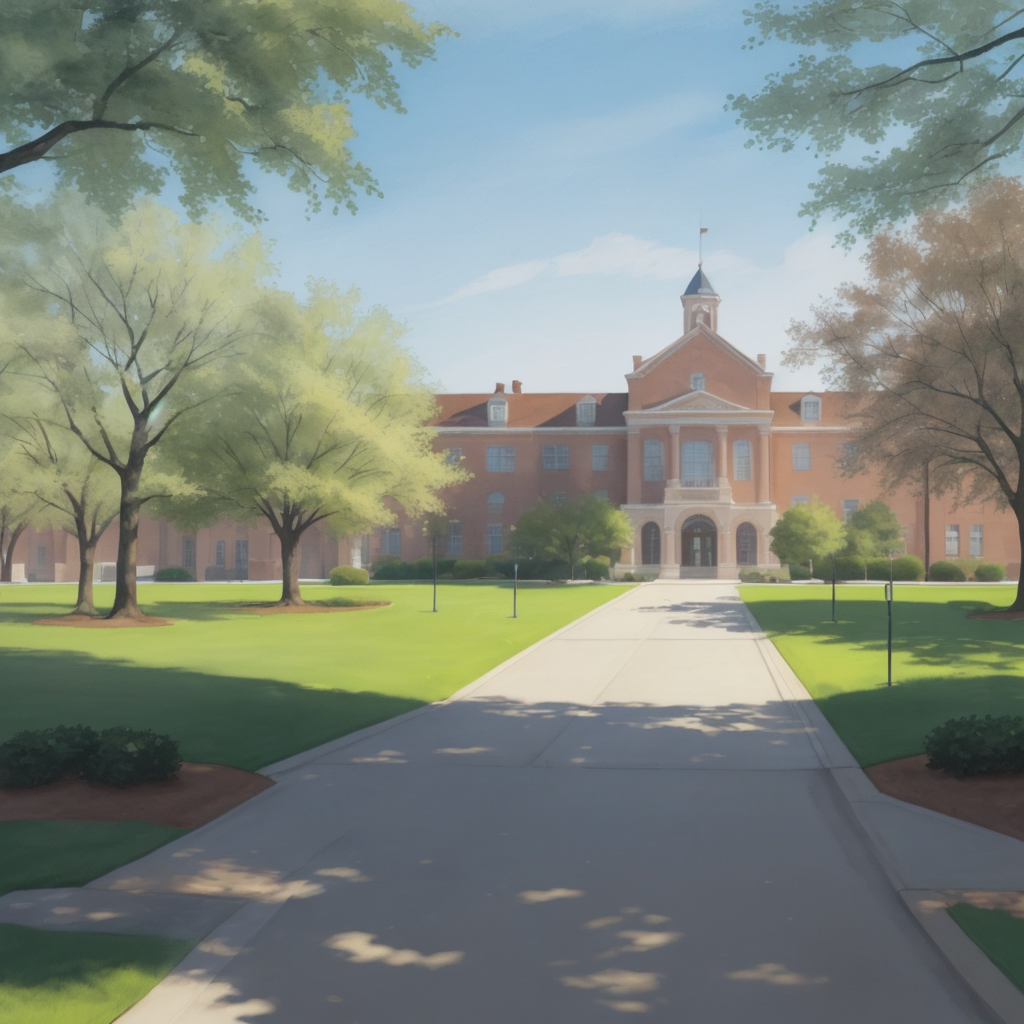What Career Paths Await Graduates of Physical Education Degrees?
Embarking on a career in physical education, including pursuing one of the best online physical education degrees, is not just about sharing a love for sports and fitness; it’s about inspiring others to lead healthier, more active lifestyles. Whether you’re passionate about teaching kids, coaching athletes, or guiding adults in their fitness journeys, the field of physical education offers a plethora of opportunities that cater to a wide array of interests and skills.
From shaping young minds in schools to crafting personalized fitness regimes, the roles within physical education are as diverse as they are rewarding. Knowing the ins and outs of these careers, including their requirements and responsibilities, is crucial for anyone looking to make a significant impact in this field. Let’s dive into the world of physical education careers and explore the paths that can lead to a fulfilling and successful career.
Exploring Physical Education Careers
As I delve deeper into the realm of physical education, it’s clear that the opportunities within this field are as vast as they are fulfilling. My journey in understanding the myriad of careers in physical education has revealed paths ranging from direct interaction with students and athletes to more strategic roles behind the scenes. Whether it’s about shaping the young minds in schools or pushing athletes to their peak performance, every role carries an impact that extends beyond the confines of a gym or playground.
At the core of Physical Education (PE) Teaching, you’ll find a role dedicated to nurturing students’ physical abilities and knowledge of health and wellness. It’s a role that demands not just an expertise in various sports and physical activities but also a keen understanding of health sciences. PE Teachers are tasked with crafting lesson plans that are both engaging and educational, aiming to instill a lifelong appreciation for health and activity in their students. It’s not just about teaching sports; it’s about promoting a lifestyle.
For those with a passion for Coaching, the field offers a chance to work closely with athletes, honing their skills and strategies. Coaching isn’t confined to schools—opportunities sprawl across community centers, amateur leagues, and professional sports teams. What’s essential here is a deep understanding of the sport, combined with the ability to mentor and inspire players towards achieving their utmost best.
Another critical area I’ve explored is the role of curriculum designers within physical education. These professionals work behind the scenes, crafting the educational content that guides both teachers and students towards successful outcomes in PE. It’s a role that blends creative insight with pedagogical knowledge, ensuring that the curriculum is engaging, up-to-date, and effective in promoting physical health.
The emerging practice of Yoga has also caught my attention. It’s a field that emphasizes body exercises, flexibility, and mental wellness, devoid of any artificial machinery. For those inclined towards a holistic approach to physical education, pursuing certification in yoga offers a fulfilling pathway. It’s a testament to the diversity within physical education, where traditional sports meet ancient practices, each promoting health and wellness in distinct yet complementary ways.
In my quest to unpack the opportunities in physical education, it’s become evident that no single path defines the field.
Requirements for a Career in Physical Education

In the realm of physical education, the journey to a fulfilling career starts with a solid foundation in education and practical training. It’s not just about knowing the rules of the game or being able to demonstrate a perfect squat. The real impact comes from understanding the science of physical fitness and having the ability to motivate and educate others. Let’s dive into the essentials of education and training, followed by the need for certifications and licenses to stand out in this competitive field.
Education and Training
A career in physical education demands a comprehensive understanding of both the human body and the principles of physical fitness. I’ve found that most positions require at least a bachelor’s degree in physical education, kinesiology, or a related field. These programs cover a broad spectrum of topics, including anatomy, physiology, nutrition, and sports psychology, providing a well-rounded education.
Beyond the degree, practical experience plays a crucial role in preparing for a career in this field. Internships or volunteer positions with schools, sports teams, or fitness centers offer invaluable hands-on experience. It’s during these experiences that I’ve learned the importance of adapting teaching methods to cater to different ages, abilities, and learning styles.
Certifications and Licenses
In addition to education and training, certifications and licenses are critical for anyone looking to make a mark in physical education. Specific requirements can vary depending on the job and location, but here’s what I’ve observed to be most valuable:
- Certified Physical Education Teacher: For those looking to work in public schools, state certification is often required. This typically involves completing an accredited teacher education program and passing a comprehensive exam.
- Specialty Certifications: For roles such as personal trainers or fitness instructors, certifications from recognized organizations like the American Council on Exercise (ACE) or the National Strength and Conditioning Association (NSCA) can set you apart. These certifications not only validate your expertise but also keep you updated on the latest fitness trends and techniques.
- Adapted Physical Education (APE) Certification: As inclusivity in sports and fitness gains importance, having an APE certification can be a game-changer. This specialization enables professionals to work effectively with individuals who have physical, cognitive, or emotional disabilities.
Earning these credentials isn’t just about fulfilling job requirements; it’s a commitment to professionalism, continuous learning, and quality in teaching and coaching. With the right mix of education, practical experience, and specialized certifications, you can position yourself as a highly competent and competitive candidate in the field of physical education.
Different Paths in Physical Education Careers

Exploring a career in physical education offers a varied and fulfilling path for those passionate about fitness, health, and educating others. Whether you’re drawn to the traditional role of teaching in schools or you’re intrigued by the dynamic aspects of coaching, the field of physical education presents diverse opportunities. Let’s dive into some of the main avenues you can pursue.
Teaching in Schools
As a physical education teacher in schools, I have the privilege of introducing students to the importance of physical activity and a healthy lifestyle. It’s more than just teaching sports; it’s about instilling lifelong values of teamwork, discipline, and health awareness. Each state has specific certification requirements, so it’s crucial to align your education and training accordingly. This role plays a critical part in combating the growing concerns over child obesity rates by promoting active and healthy routines from a young age.
Coaching Sports Teams
Coaching sports teams is another exciting career path in physical education. I find this role incredibly rewarding as it allows me to work closely with athletes, helping them reach their full potential. Coaching isn’t just about sports tactics; it’s about mentorship, developing strategies for team and individual growth, and fostering a competitive spirit. Specializing in a particular sport can open doors to working with school teams, local clubs, or even at a national level.
Personal Training
As a personal trainer, I focus on designing individualized fitness programs that cater to my clients’ specific needs and goals. This career requires a deep understanding of human physiology and exercise science. It’s also essential to stay updated on the latest fitness trends and certifications to offer the best service possible. Personal trainers can work in gyms, health clubs, or even as independent contractors.
Physical Therapist
Pursuing a career as a physical therapist in the realm of physical education involves helping individuals recover from injuries and improve their physical functionality. It’s a path that blends healthcare with physical fitness, demanding a comprehensive understanding of the human body and rehabilitation techniques. Advanced degrees and licensing are required, making it a highly specialized field.
Sports Dietitian
A sports dietitian specializes in crafting nutrition plans that enhance athletic performance and overall health. This role involves a deep dive into the science of nutrition and how it affects physical activity. Working closely with athletes and fitness enthusiasts, I ensure they receive the optimal blend of nutrients to reach their performance and health objectives.
Sport Journalist
As a sport journalist, I get to combine my passion for sports with writing, covering games, interviewing athletes, and reporting on sports trends. This career path offers a unique perspective on physical education and opens up opportunities to work with newspapers, websites, and broadcast media.
Fitness Instructor
Fitness instructors are pivotal in leading group exercise classes, from aerobics to spinning to yoga. I find this role exhilarating as it allows me to motivate and inspire people to improve their health and fitness in a group setting. It’s a career that thrives on energy, innovation, and the ability to connect with people.
Athletic Trainer
Working as an athletic trainer involves providing immediate care and rehabilitation for athletes who suffer injuries during their activities. It requires a strong foundation in injury prevention, assessment, and treatment. I collaborate closely with healthcare professionals to ensure athletes return to their sport safely and efficiently.
Dance Instructor
Lastly, stepping into the shoes of a dance instructor allows me to merge physical education with the art of dance. Teaching various dance styles, from ballet to hip-hop, I help students improve their physical health, coordination, and expression. It’s a path that celebrates movement and creativity, offering a unique spin on traditional physical education careers.
Embarking on a career in physical education allows me to make a meaningful impact on individuals’ health and well-being. Each path offers its own set of challenges and rewards, emphasizing the importance of physical fitness and promoting a healthy lifestyle across different communities.
Benefits of Pursuing a Career in Physical Education

When I first considered a career in physical education, I was driven by my passion for sports and fitness. However, as I delved deeper into this career path, I discovered numerous benefits that extend far beyond just sharing my love for physical activity with others.
One of the most significant advantages is the positive impact you can have on people’s lives. Whether it’s coaching a youth sports team, teaching dance, or working as a physical therapist, you’re in a unique position to inspire healthy lifestyle choices and physical activity among diverse communities. This not only promotes well-being but also helps in combating the growing concerns related to sedentary lifestyles.
Another benefit is the variety of career paths available within the field of physical education. With options ranging from personal training to sports journalism, there’s no shortage of opportunities to explore based on your interests and expertise. Each path offers the chance to specialize and become an authority in your chosen niche, fostering both personal and professional growth.
Conclusion
Embarking on a career in physical education opens up a world of possibilities that extend far beyond the traditional classroom setting. It’s an opportunity to touch lives, foster a love for physical activity, and contribute significantly to the battle against inactivity and its associated health risks.
With a wide array of paths to explore and the flexibility in educational requirements, there’s something for everyone. Whether you’re passionate about coaching, eager to dive into sports journalism, or interested in another niche within this field, the journey promises growth, fulfillment, and the chance to make a lasting impact.
I’ve seen firsthand the difference these careers can make, not just for the individuals pursuing them but for the communities they serve. It’s more than a job; it’s a calling to improve health and wellness across the board.



